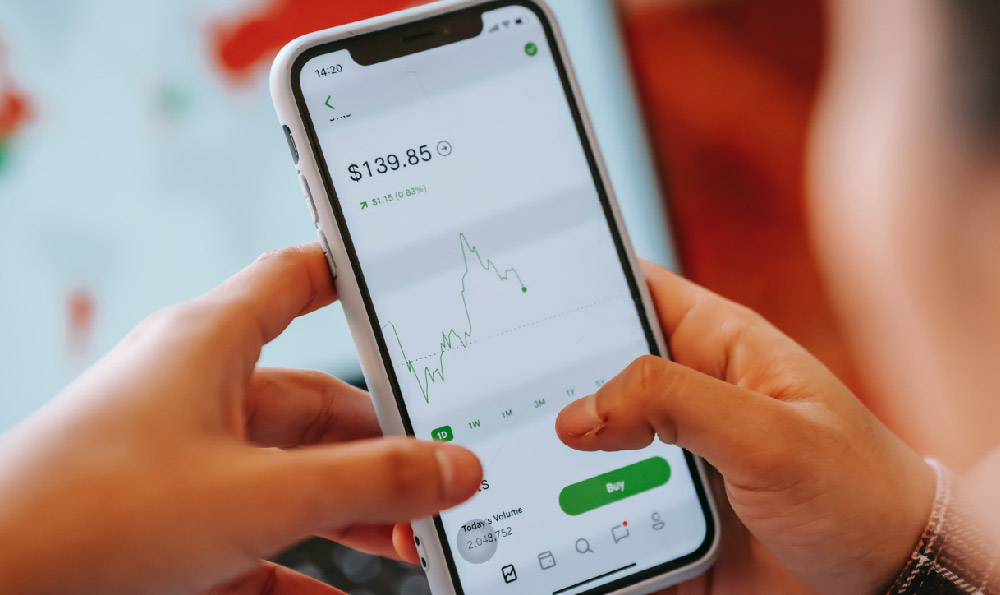It's commendable that you're thinking about investing and making money at 14. That ambition and foresight will serve you well. However, it’s crucial to understand that the world of investment, especially in areas like cryptocurrency, carries significant risk. At your age, ethical and legal considerations also become paramount. So, let’s explore some responsible options, keeping in mind that the best approach involves a blend of learning, small-scale experimentation, and adult supervision.
Before diving into specifics, let's address a foundational principle: risk tolerance. At 14, your primary focus should be on building financial literacy, not rapid wealth accumulation. You have ample time to compound wealth later in life. Therefore, your investment choices should prioritize safety and educational value over high-risk, high-reward scenarios.
Given this context, directly investing in cryptocurrency at 14 is generally not advisable. Most cryptocurrency exchanges have age restrictions and require users to be at least 18 years old. Even if you find a workaround, the inherent volatility and complexity of the cryptocurrency market make it unsuitable for someone without substantial financial knowledge and experience. The potential for significant losses is high, and understanding the underlying technology, market dynamics, and regulatory landscape requires time and effort. Moreover, you'd likely need adult permission and supervision for such investments.

Instead of direct cryptocurrency investment, consider these safer and more age-appropriate alternatives:
-
Simulated Trading Platforms: Many platforms offer simulated trading environments where you can practice buying and selling cryptocurrencies (and other assets) with virtual money. This allows you to learn about market movements, technical analysis, and trading strategies without risking real capital. Paper trading accounts are a fantastic way to familiarize yourself with the mechanics of trading and develop your skills. Some popular platforms offer educational resources as well, which can greatly enhance your understanding of the markets. Take advantage of these tools to build a solid foundation of knowledge before even considering real-world investing.
-
Stock Market Investing (with Adult Supervision): While cryptocurrency might be too risky, investing in established companies on the stock market, with the guidance of a parent or guardian, can be a valuable learning experience. You can research companies you admire, understand their business models, and learn about fundamental analysis. Consider starting with a small amount of money and investing in well-established, reputable companies. Exchange Traded Funds (ETFs) that track a broad market index like the S&P 500 can provide diversification and reduce risk. Your parents or guardians can help you open a custodial brokerage account and guide you through the process. This hands-on experience, coupled with their guidance, will be invaluable.
-
High-Yield Savings Accounts or Certificates of Deposit (CDs): These are very safe and low-risk options. Although the returns might not be as high as some other investments, they offer a guaranteed return and are a great way to learn about saving money and earning interest. Shop around for the best interest rates and understand the terms and conditions before investing. These options are particularly suitable if you have a specific savings goal in mind, like purchasing a laptop or saving for college.
-
Investing in Your Education and Skills: Arguably the most valuable investment you can make at 14 is in yourself. Focus on acquiring knowledge and skills that will be valuable in the future. This could involve taking online courses, learning a new language, developing programming skills, or honing your writing abilities. These skills will not only increase your earning potential in the long run but also make you a more well-rounded and capable individual. Consider it an investment with a guaranteed high return.
-
Starting a Small Business (with Guidance): Entrepreneurship can be a powerful way to learn about finance and business. With adult supervision, you could start a small venture, such as offering tutoring services, creating and selling crafts online, or providing lawn care services. This will teach you about budgeting, marketing, customer service, and managing finances. It's a practical way to apply your knowledge and develop valuable business skills.
Now, let's address the issue of avoiding investment traps. Always remember that if something sounds too good to be true, it probably is. Be wary of investment opportunities that promise guaranteed high returns or require you to recruit others. These are often scams. Do your research before investing in anything, and never invest more than you can afford to lose. Consult with trusted adults, such as your parents, guardians, or a financial advisor, before making any investment decisions.
It’s also crucial to understand the concept of diversification. Don't put all your eggs in one basket. Spreading your investments across different asset classes can help to reduce risk. However, at your age, diversification might not be as critical as building a solid foundation of knowledge and understanding the basics of investing.
Furthermore, be aware of the emotional aspects of investing. Market fluctuations can be unsettling, and it's important to remain calm and avoid making impulsive decisions based on fear or greed. Develop a long-term perspective and focus on your goals rather than short-term market volatility.
Finally, remember that learning about finance is a lifelong journey. Stay curious, continue to educate yourself, and seek advice from trusted sources. The earlier you start, the better equipped you'll be to make informed financial decisions throughout your life. While the allure of quick riches in cryptocurrency might be tempting, focusing on building a solid financial foundation, developing valuable skills, and learning from experienced adults is the most responsible and effective approach to making money at 14. Prioritize education and responsible experimentation over chasing fleeting trends.












